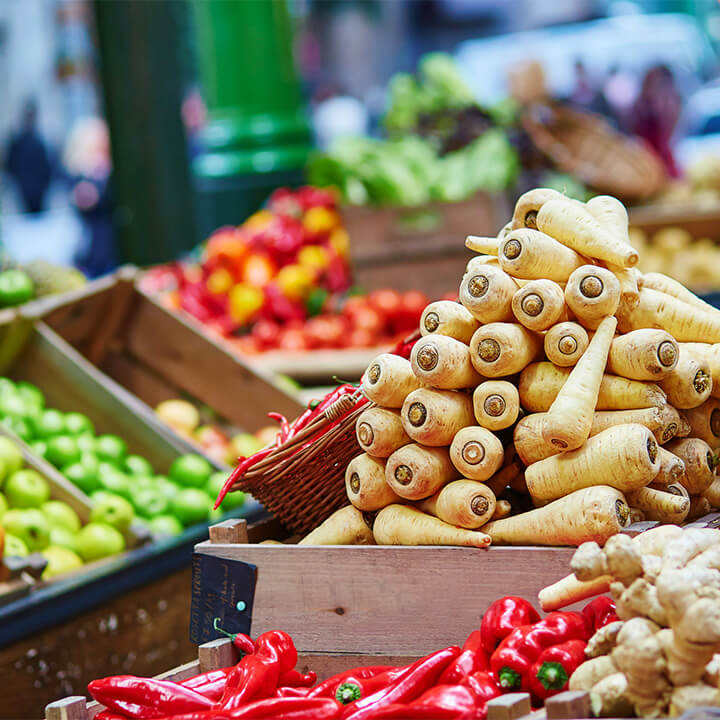New EU Directive banning unfair practices in food supply chains
11th March 2020
The European Parliament, the Council and the Commission have reached agreement on a new set of rules that will ensure protection for small and mid-range agri-food [1] companies against practices contrary to good faith and fair dealing often metered out by stronger buyers (large retailers and processors). It has long been a source of concern that the food supply chain is vulnerable to unfair trading practices due to stark imbalances between small and large operators. Often farmers and small producers in the food supply chain do not have sufficient bargaining power to defend against the practices.
The EU Directive 2019/633 on unfair trading practices in B2B relationships in the agricultural and food supply chain (the Directive) will cover agricultural and food products traded in the food supply chain, banning, for the first time, unfair trading practices imposed unilaterally by one trading partner on another. Other practices will only be permitted if they have been clearly agreed between the parties involved.
What is the effect of Brexit?
The Directive will be in full force by the end of March 2021 and the UK will be treated the same as any other non-EU country in the world. Specifically:
- any farmer exporting agri-food to the EU that is being subjected to illegal practices by the buyer will enjoy the same protections as an EU farmer; and
- any agri-food importer or a manufacturer that is buying agri-food from an EU supplier will fall within the remit of the Directive and therefore will have to ensure that its buying operations comply with the terms of the Directive.
What are unfair trading practices?
The Directive provides for a list of unfair trading practices that are abusive and prohibited in all circumstances:
- late payments (later than 30 days after the end of the agreed delivery period or the date on which the payment is due for perishable food products or later than 60 days for non-perishable products);
- last minute order cancellations;
- unilateral changes to the terms of the supply agreement;
- refusal to enter into a written contract;
- requiring payments from the supplier that are not related to the sale of the products;
- requiring the supplier to pay for the deterioration or loss of the products on the buyer’s premises;
- unlawfully acquiring or using trade secrets of the supplier;
- threatening to carry out acts of commercial retaliation; and
- requiring compensation from the supplier for the cost of investigating customer complaints when there is no negligence or fault on the supplier’s part.
The Directive also provides for a grey list of unfair trading practices that are prohibited unless they have been agreed “in clear and unambiguous terms in the supply agreement or in a subsequent agreement between the supplier and the buyer”:
- returning unsold products to the supplier without paying;
- charging payment as a condition for displaying or listing the supplier’s products;
- requiring the supplier to bear the costs of discounts on products sold by the buyer as part of a promotion (unless the buyer, prior to the promotion, specifies the period of promotion and the expected quantity of products to be ordered at the discounted price);
- requiring the supplier to pay for advertising by the buyer;
- requiring the supplier to pay for marketing by the buyer; and
- charging the supplier for staff to fit out premises used for the sale of the products.
Which businesses will be affected?
The new rules will cover micro enterprises, small and medium-sized enterprises (SMEs) and mid-range enterprises in the food supply chain that have an annual turnover less than EUR 350 million. The rules will cover retailers, food processors, wholesalers, cooperatives or producers’ organisations, or a single producer, any that are engaging in the unfair trade practices identified. The Directive adopts a dynamic approach, so that smaller operators are only protected against unfair trading practices in cases where these originate from larger businesses. This means, for instance, that micro enterprises will be protected against SME buyers and SME suppliers will be protected against mid-range buyers and buyers larger than that.
WM Comment
In addition to this Directive, the new Agriculture Bill 2019-21 which is currently going through Parliament contains a section entitled ‘Fair Dealing with agricultural producers and others in the supply chain’ which deals with very similar issues and provides the Secretary of State with power to make regulations to introduce obligations that promote fair contractual relationships between primary producers and the business purchasers of their products. It is therefore clear that there is a general movement towards enshrining in law the prohibition of unfair trading practices.
[1] Agri-food products has a very wide definition and includes everything from vegetables to honey, dairy to meat, cereals and grains, amongst many other things.



